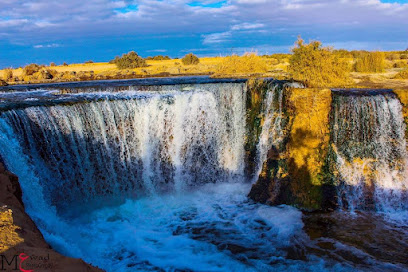
Wadi El Rayan National Park: Egypt’s Hidden Oasis
Discover Wadi El Rayan National Park: Egypt’s Hidden Oasis, where stunning lakes, unique waterfalls, and desert landscapes converge to create an unforgettable experience.
Wadi El Rayan National Park is a stunning nature reserve in the heart of Egypt's Western Desert. This unique park is named after its two main features: the Wadi El Rayan Lakes and the Wadi El Rayan Waterfalls. The lakes are man-made, created to collect agricultural drainage water, but have since become a haven for a variety of wildlife and plant species. The park is home to the only waterfalls in Egypt, making it a must-see for nature lovers. The cascading waters provide a beautiful contrast to the surrounding desert landscape. Visitors can enjoy a range of activities here, from bird watching to swimming, and even sandboarding on the nearby dunes. Wadi El Rayan is also rich in history and culture. The park contains several archaeological sites, including ancient ruins and fossils. It’s a perfect destination for those looking to combine adventure with a bit of history. The park is easily accessible from Cairo, making it an ideal day trip or weekend getaway.
Local tips in Wadi El Rayan National Park
- Best visited in the cooler months from October to April to avoid extreme heat.
- Bring binoculars for bird watching; the park is home to several rare species.
- Wear comfortable shoes suitable for both walking and sandboarding.
- Pack plenty of water and snacks, as facilities within the park are limited.
- Consider hiring a local guide to learn about the park’s history and natural features.
Wadi El Rayan National Park: Egypt’s Hidden Oasis
Wadi El Rayan National Park is a stunning nature reserve in the heart of Egypt's Western Desert. This unique park is named after its two main features: the Wadi El Rayan Lakes and the Wadi El Rayan Waterfalls. The lakes are man-made, created to collect agricultural drainage water, but have since become a haven for a variety of wildlife and plant species. The park is home to the only waterfalls in Egypt, making it a must-see for nature lovers. The cascading waters provide a beautiful contrast to the surrounding desert landscape. Visitors can enjoy a range of activities here, from bird watching to swimming, and even sandboarding on the nearby dunes. Wadi El Rayan is also rich in history and culture. The park contains several archaeological sites, including ancient ruins and fossils. It’s a perfect destination for those looking to combine adventure with a bit of history. The park is easily accessible from Cairo, making it an ideal day trip or weekend getaway.
When is the best time to go to Wadi El Rayan National Park?
Iconic landmarks you can’t miss
Wadi El Rayan Fayoum Falls
Discover Egypt's only waterfalls at Wadi El Rayan, a stunning desert oasis with lakes, dunes, and unique wildlife in Fayoum Governorate.
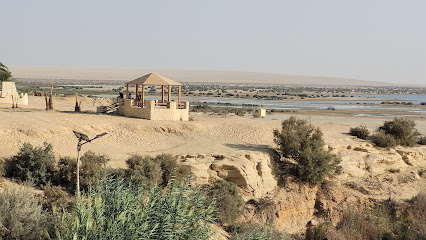
Wadi El Rayan
Discover Wadi El Rayan: Egypt's unique desert oasis with waterfalls, wildlife, and ancient whale fossils in a stunning natural reserve.
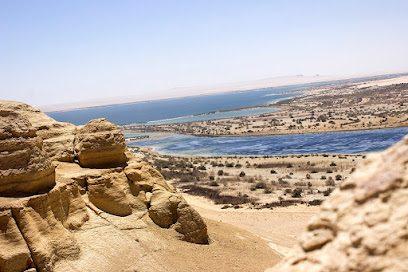
Wadi Hitan National Park
Explore the ancient Valley of the Whales in Egypt's Faiyum Desert, a UNESCO site with unique whale fossils and stunning desert landscapes.
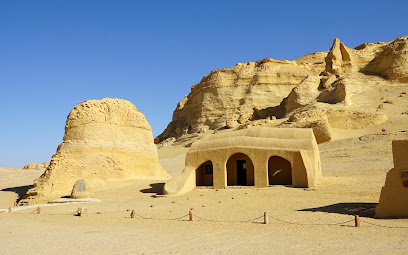
سواقي الهدير
Discover the historic Roaring Waterwheels (سواقي الهدير) in Fayoum, Egypt—an ancient irrigation marvel blending natural beauty with rich cultural heritage.
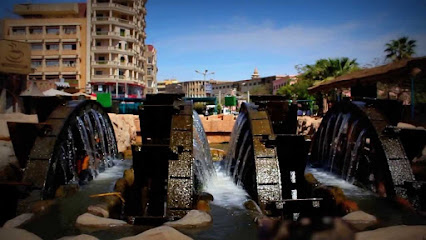
Mangrove Camp Fayoum
Escape to a tranquil lakeside oasis at Mangrove Camp Fayoum, offering nature, relaxation, and cultural experiences near Cairo.
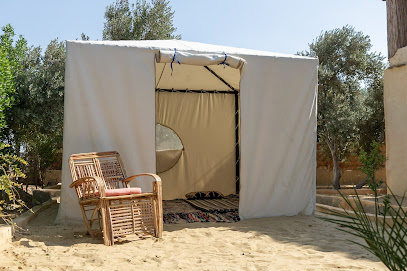
Jabal El Medawara
Discover breathtaking desert views and tranquil hiking at Jabal El Medawara in Faiyum, Egypt. A perfect escape into nature's beauty.
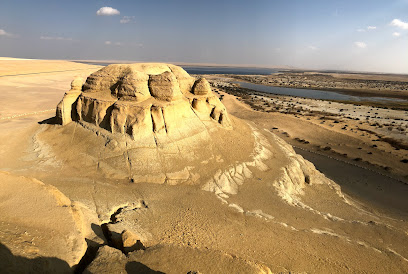
Fayoum Water Wheels Park
Experience the beauty and history of Fayoum Water Wheels Park, a serene escape showcasing ancient irrigation methods in Egypt's stunning countryside.
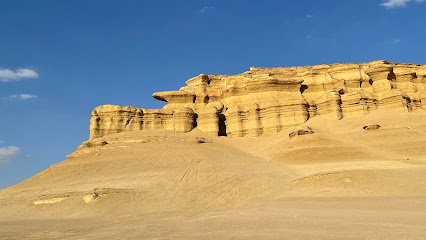
شلالات وادي الريان
Discover the beauty of Wadi El Rayan Waterfalls, a unique desert oasis in Fayoum, Egypt, offering stunning landscapes and refreshing activities.
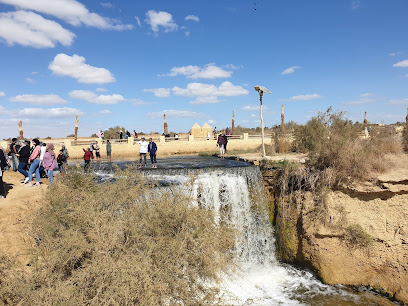
Magic lake camp
Discover tranquility and adventure at Magic Lake Camp, Faiyum: camping, water activities, and stunning natural beauty await.
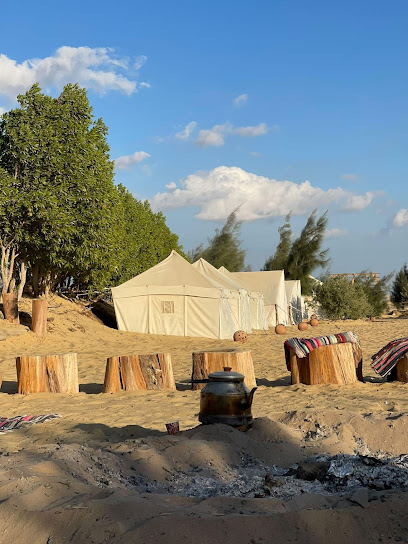
Bird watching
Discover a world of avian diversity at Qarun Lake, a premier birdwatching destination in Egypt's scenic Faiyum Governorate.
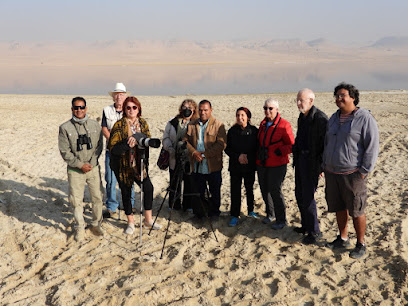
Watermelon Valley
Explore Watermelon Valley in Faiyum: A surreal desert landscape with watermelon-shaped rocks, geological wonders, and captivating local legends.
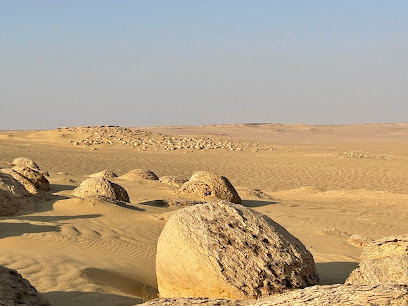
Wadi el Rayan Gates
Discover Wadi el Rayan: Egypt's unique desert oasis with stunning waterfalls, serene lakes, and diverse wildlife, a haven for nature lovers.
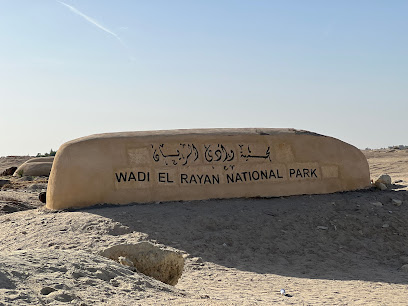
وادي الحيتان
Explore Wadi Al-Hitan: A UNESCO site revealing the evolution of whales through remarkable fossils in Egypt's Western Desert.
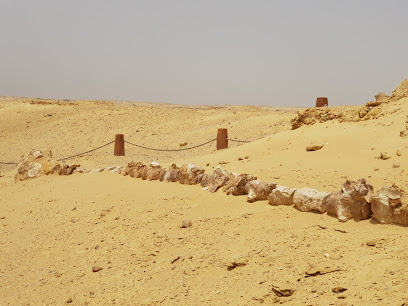
Entry gate Wadi Rayan Falls
Discover Egypt's only waterfalls at Wadi Rayan, a unique desert oasis with stunning landscapes and diverse wildlife in Fayoum Governorate.
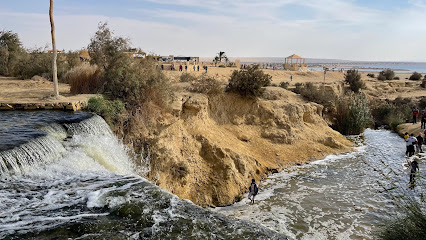
Sand boarding faiyum
Experience the thrill of sandboarding in the Egyptian desert oasis of Faiyum, a unique blend of adventure and natural beauty.
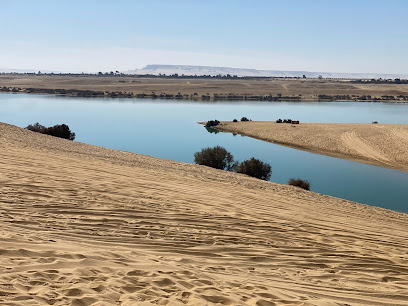
Unmissable attractions to see
Wadi El Rayan
Discover the serene beauty of Wadi El Rayan, a stunning desert oasis in Egypt, featuring breathtaking lakes and diverse wildlife for an unforgettable adventure.
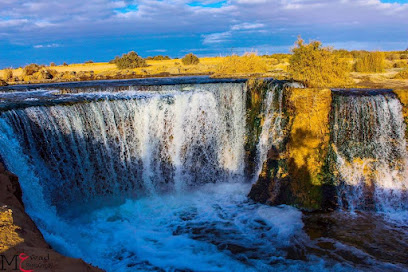
سواقي الهدير
Explore سوَاقي الهدير in Faiyum for stunning landscapes, rich culture, and unforgettable experiences in Egypt's enchanting natural oasis.
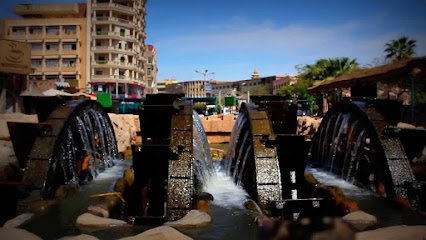
Magic lake camp
Experience nature's embrace at Magic Lake Camp in Faiyum, offering serene landscapes, diverse wildlife, and a magical outdoor adventure.
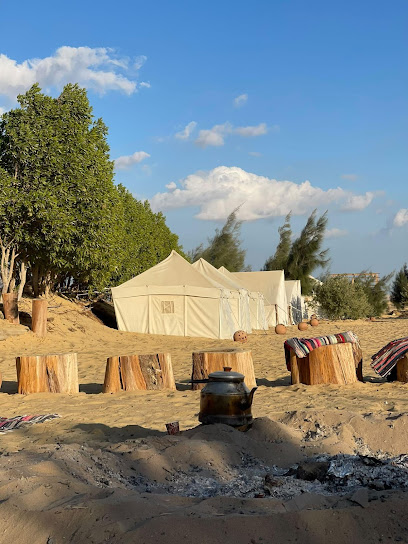
Bird watching
Explore a stunning bird watching area in Faiyum Governorate, home to diverse avian species and breathtaking natural landscapes.
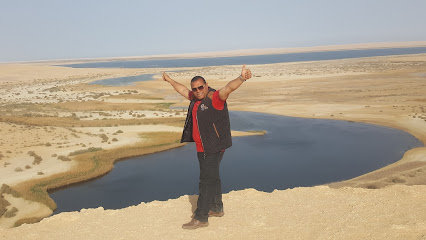
Watermelon Valley
Experience the breathtaking natural beauty of Watermelon Valley, a hidden gem in Egypt's Faiyum Governorate, filled with unique landscapes and tranquility.
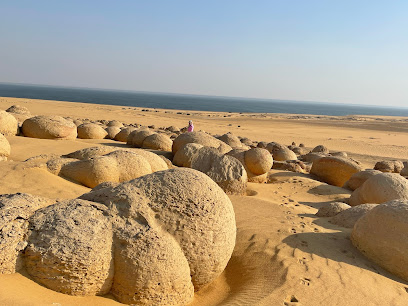
Wadi el Rayan Gates
Discover the breathtaking beauty of Wadi el Rayan Gates, a stunning natural park in Egypt's Faiyum Governorate, filled with waterfalls and diverse wildlife.
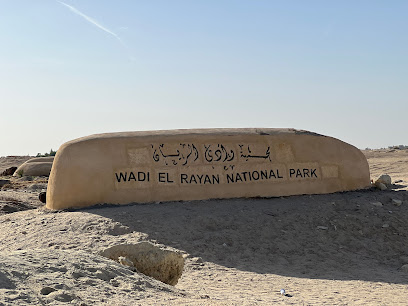
وادي الحيتان
Explore the wonders of Wadi Al-Hitan, a UNESCO World Heritage site showcasing ancient whale fossils and stunning desert landscapes.
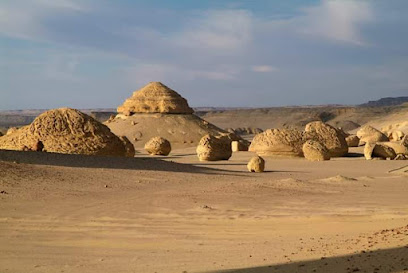
Entry gate Wadi Rayan Falls
Experience the breathtaking beauty of Wadi Rayan Falls, a natural landmark in Egypt, offering stunning vistas and serene landscapes for nature lovers.
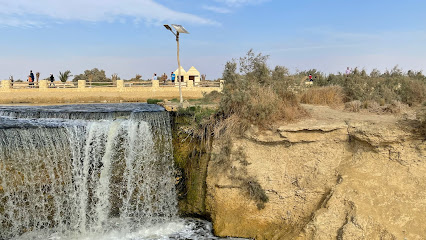
Sand boarding faiyum
Experience the thrill of sandboarding amidst the breathtaking dunes of Faiyum, a unique adventure in Egypt's stunning desert landscape.
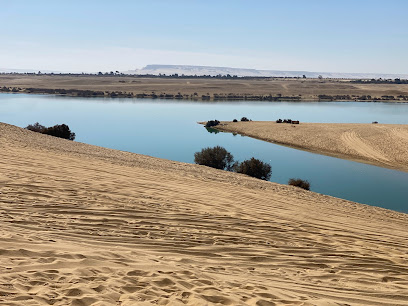
تنظيم رحلات الفيوم بحيره قارون وادي الريان وادي الحيتان
Experience the natural beauty and rich biodiversity of Egypt at the ecological park of Lake Qarun and Wadi Al-Riyan, a true haven for nature lovers.
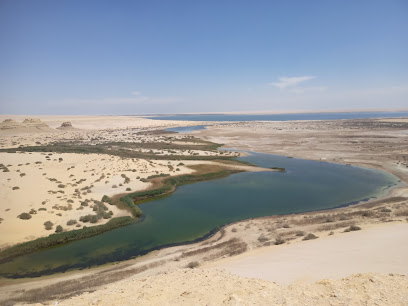
وادي الريان
Explore Wadi Al Raian, a stunning park in Faiyum, Egypt, known for its breathtaking landscapes, wildlife, and serene natural beauty.
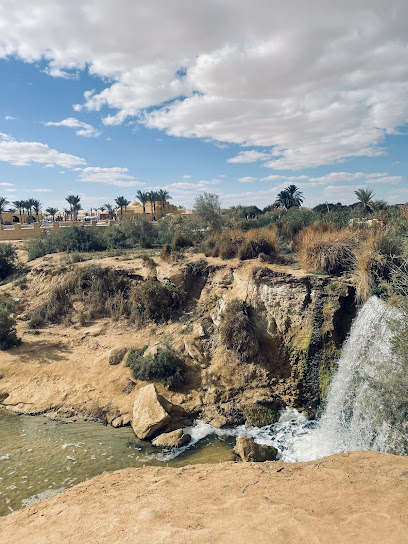
Explore Fayoum
Explore Fayoum Oasis, where breathtaking landscapes meet ancient history in Egypt's hidden gem.

Essential places to dine
Al Khal Egyptian Restaurant
Experience authentic Egyptian cuisine at Al Khal Restaurant in Heliopolis - where every dish tells a story.
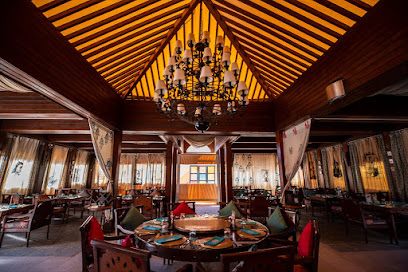
Wadi El Rayan Fayoum Falls
Explore Wadi El Rayan Fayoum Falls: Egypt's breathtaking waterfalls surrounded by lush landscapes and rich wildlife.
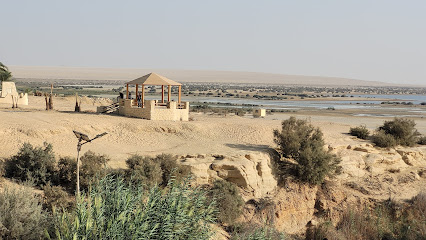
Lazib Inn Resort & Spa
Experience luxury and tranquility at Lazib Inn Resort & Spa in Faiyum - your perfect getaway surrounded by nature's beauty.
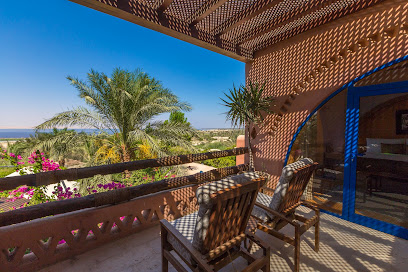
Wadi El Rayan
Experience the serene beauty of Wadi El Rayan - Egypt's natural oasis with stunning lakes and diverse wildlife.
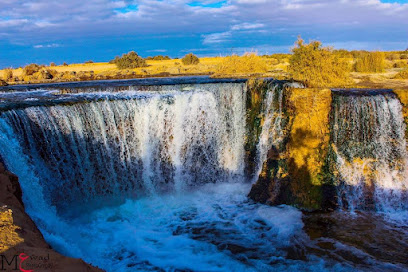
Kom El Dikka Restaurant
Experience authentic Egyptian cuisine at Kom El Dikka Restaurant in Tunis Village—where organic meets tradition amidst stunning landscapes.
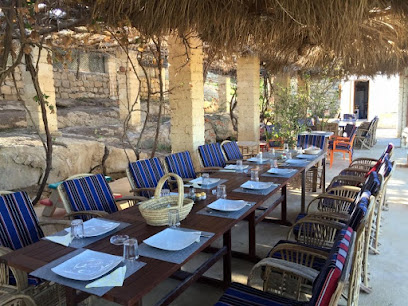
Ibis Restaurant & Cooking School
Experience authentic Egyptian flavors at Ibis Restaurant & Cooking School - where dining meets culinary education in Faiyum.
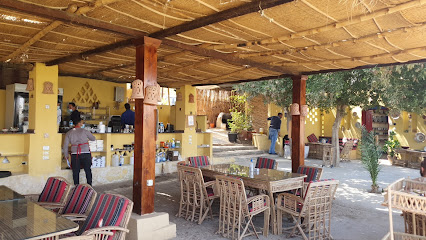
Magic lake camp
Experience tranquility and adventure at Magic Lake Camp in Faiyum Governorate – your perfect escape into nature's embrace.
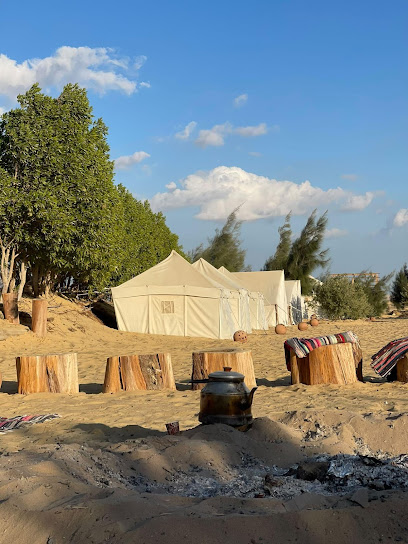
الريان
Experience authentic Egyptian flavors at Al Rayan, a delightful restaurant in Faiyum Governorate perfect for every traveler seeking local cuisine.
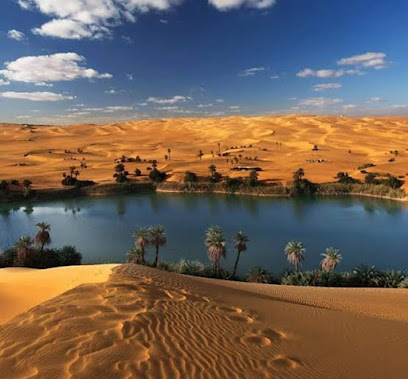
Wadi Rayan Cafeteria
Discover authentic Egyptian cuisine at Wadi Rayan Cafeteria in Faiyum, where stunning views meet delicious local flavors.
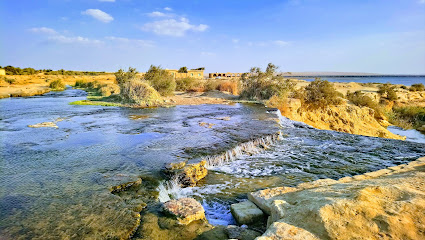
Flamingo camp
Discover tranquility at Flamingo Camp by Qarun Lake—where nature meets comfort with delicious dining options.
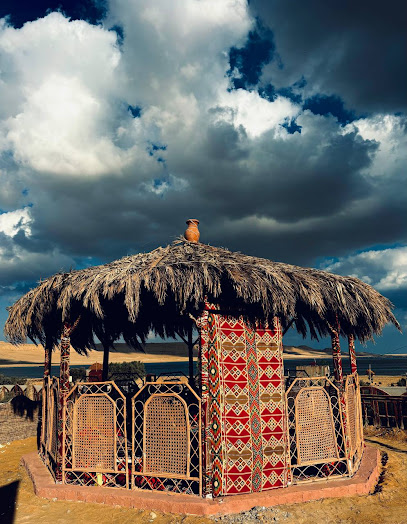
Wadi el Rayan Gates
Explore Wadi el Rayan Gates: A breathtaking natural park in Egypt offering stunning landscapes and unique wildlife experiences.
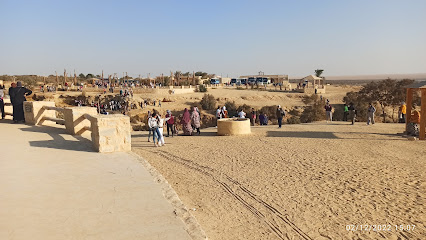
Entry gate Wadi Rayan Falls
Explore Wadi Rayan Falls: A breathtaking oasis where cascading waters meet stunning desert landscapes in Egypt's Faiyum Governorate.
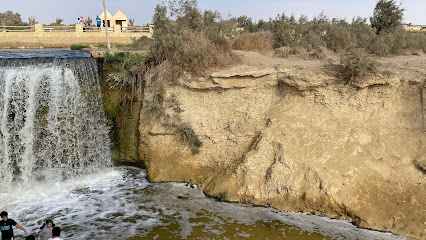
Wadi El Rayan Lake
Explore Wadi El Rayan Lake: A Stunning Oasis in Faiyum Governorate with Nature's Wonders Awaiting You.
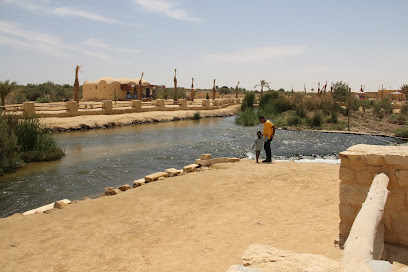
ايس كريم الشلال
Experience irresistible ice cream delights at ايس كريم الشلال amidst the stunning landscapes of Wadi El Rayan in Faiyum Governorate.
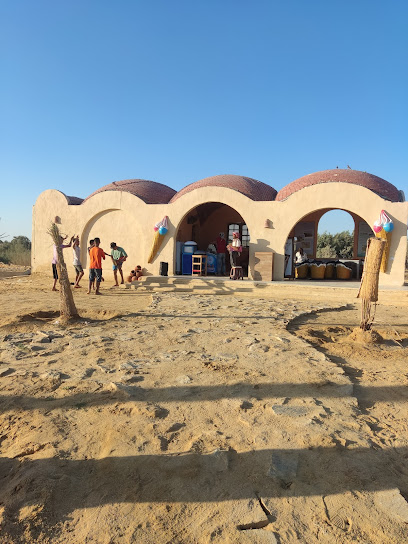
جنة الوادي
Experience authentic Egyptian cuisine at جنة الوادي in Faiyum - where flavor meets tradition in a beautiful buffet setting.
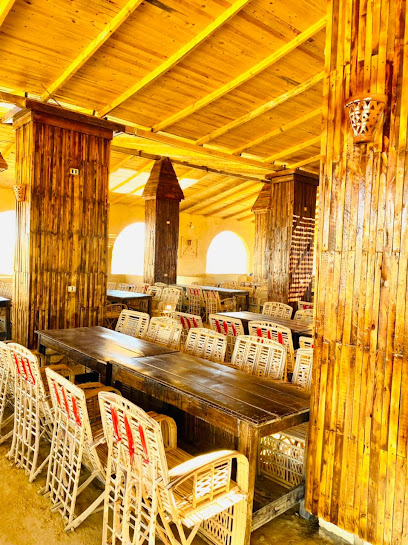
Markets, malls and hidden boutiques
Mall of Arabia
Discover a world of shopping and entertainment at Mall of Arabia, Giza's ultimate retail destination with countless brands and dining options.
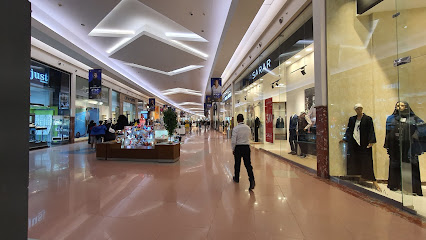
Mall of Egypt
Explore the vast shopping, dining, and entertainment offerings at Mall of Egypt, a premier destination in Giza for every traveler.
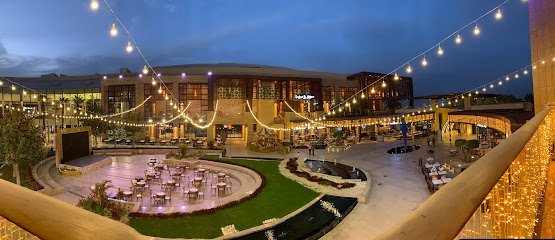
Dandy Mega Mall
Explore Dandy Mega Mall in Giza for an unmatched shopping experience with local and international brands, delicious dining, and family-friendly entertainment.
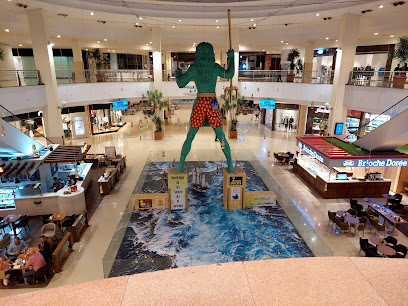
Helnan Auberge Fayoum
Experience luxury and tranquility at Helnan Auberge Fayoum, where stunning landscapes meet rich Egyptian culture in a perfect getaway.
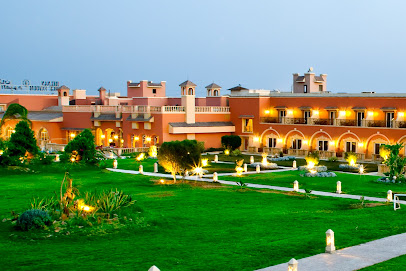
Wadi El Rayan Fayoum Falls
Explore Wadi El Rayan Fayoum Falls, Egypt's hidden gem with breathtaking waterfalls, lush parks, and a serene escape into nature's beauty.
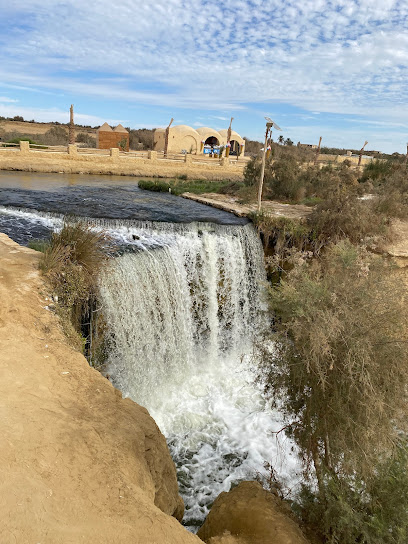
Wadi El Rayan
Explore Wadi El Rayan, Egypt's breathtaking nature preserve with stunning lakes, waterfalls, and unique wildlife.
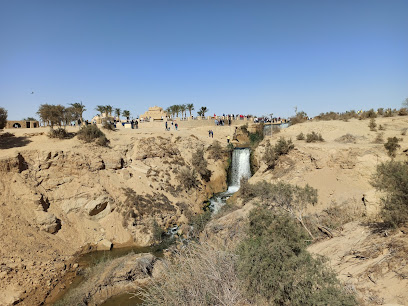
Mangrove Camp Fayoum
Discover the tranquility and natural beauty of Mangrove Camp Fayoum near Qarun Lake, ideal for families and nature enthusiasts alike.
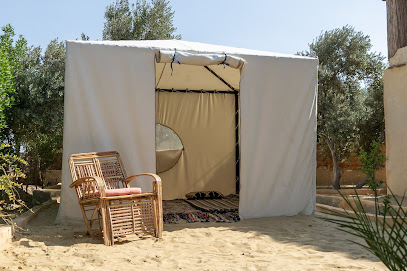
Magic lake camp
Experience the beauty and tranquility of Magic Lake Camp in Faiyum, Egypt, where nature meets comfort for unforgettable adventures.
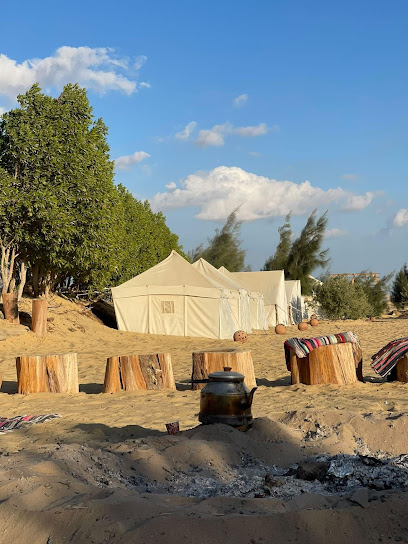
Explore Fayoum
Explore Fayoum's breathtaking landscapes, rich history, and vibrant culture, a perfect getaway for nature and history lovers alike.

Essential bars & hidden hideouts
Local Phrases about Wadi El Rayan National Park
-
- Helloمرحبا
[marhaba] - Goodbyeوداعا
[wada'an] - Yesنعم
[na'am] - Noلا
[la] - Please/You're welcomeمن فضلك
[min fadlak] - Thank youشكرا لك
[shukran lak] - Excuse me/Sorryعذرا
['udhran] - How are you?كيف حالك؟
[kayf halak?] - Fine. And you?بخير. وأنت؟
[bikhayr. wa'ant?] - Do you speak English?هل تتكلم الإنجليزية؟
[hal tatakallam al'injilizia?] - I don't understandأنا لا أفهم
[ana la afham]
- Helloمرحبا
-
- I'd like to see the menu, pleaseأرغب في رؤية القائمة، من فضلك
[urghub fi ru'yat alqaimah, min fadlak] - I don't eat meatأنا لا آكل اللحوم
[ana la akl allahum] - Cheers!في صحتك!
[fi sahtak!] - I would like to pay, pleaseأود الدفع، من فضلك
[awad alduf', min fadlak]
- I'd like to see the menu, pleaseأرغب في رؤية القائمة، من فضلك
-
- Help!النجدة!
[alnajdah!] - Go away!انصرف!
[ansiraf!] - Call the Police!اتصل بالشرطة!
[tasil bialshurta!] - Call a doctor!اتصل بالطبيب!
[tasil bialtabib!] - I'm lostلقد ضللت الطريق
[laqad dalalt altariq] - I'm illأنا مريض
[ana mareed]
- Help!النجدة!
-
- I'd like to buy...أرغب في شراء...
[urghub fi shira...] - I'm just lookingأنا فقط أتفرج
[ana faqat atfarg] - How much is it?بكم هذا؟
[bikam hatha?] - That's too expensiveهذا غالي جدا
[hatha ghali jiddan] - Can you lower the price?هل يمكنك خفض السعر؟
[hal yumkinuk khafd als'ar?]
- I'd like to buy...أرغب في شراء...
-
- What time is it?كم الساعة؟
[kam alsaa'a?] - It's one o'clockالساعة الواحدة
[alsaa'a alwahidah] - Half past (10)العاشر والنصف
[al'ashir walnusf] - Morningصباح
[sabah] - Afternoonبعد الظهر
[ba'd althuhr] - Eveningمساء
[masa'] - Yesterdayأمس
[ams] - Todayاليوم
[alyawm] - Tomorrowغدا
[ghadan] - 1واحد
[wahid] - 2اثنان
[ithnan] - 3ثلاثة
[thalatha] - 4أربعة
[arba'a] - 5خمسة
[khamsa] - 6ستة
[sitta] - 7سبعة
[sab'a] - 8ثمانية
[thamania] - 9تسعة
[tasia] - 10عشرة
[ashara]
- What time is it?كم الساعة؟
-
- Where's a/the...?أين ...؟
[ayn ...?] - What's the address?ما هو العنوان؟
[ma huwa al'anaan?] - Can you show me (on the map)?هل يمكنك أن تريني؟
[hal yumkinuk an tureeni?] - When's the next (bus)?متى الحافلة التالية؟
[mata alhafilat altaliat?] - A ticket (to ....)تذكرة (إلى...)
[tadhkirat (ila...)]
- Where's a/the...?أين ...؟
History of Wadi El Rayan National Park
-
Wadi El Rayan, located in the Fayoum Governorate of Egypt, is a unique natural depression known for its stunning landscapes and two man-made lakes. The area was originally a natural depression and was transformed into its present form in the 1970s to manage excess agricultural drainage water from the Fayoum Oasis.
-
The Fayoum region, where Wadi El Rayan is situated, has been inhabited since the time of the Pharaohs. The ancient Egyptians built extensive irrigation systems in the area, which allowed them to cultivate the land and establish settlements. Artifacts and ruins from this period provide insight into the region's agricultural and cultural history.
-
During the Roman and Byzantine periods, the Fayoum region continued to flourish. Archaeological findings, including coins, pottery, and remnants of structures, indicate that the area was an important agricultural and trade center. The Roman-era town of Karanis, located nearby, offers a glimpse into the daily life and economy of the time.
-
The Islamic conquest of Egypt in the 7th century brought significant changes to the Fayoum region, including Wadi El Rayan. The introduction of new agricultural techniques and crops, such as rice and sugarcane, boosted the region's productivity. The area also saw the construction of mosques and other Islamic architectural structures.
-
In the 20th century, Wadi El Rayan underwent substantial changes with the creation of its two artificial lakes. This transformation was part of a larger effort to manage water resources and support agricultural activities in the Fayoum region. The lakes have since become a popular destination for tourists and locals alike, offering opportunities for fishing, bird watching, and various water sports.
-
Recognizing the ecological and cultural significance of Wadi El Rayan, the Egyptian government designated it as a protected area in 1989. Conservation efforts have focused on preserving the unique flora and fauna of the region, including the rare sand gazelle and several bird species. These efforts aim to balance environmental protection with sustainable tourism and local community development.
Wadi El Rayan National Park Essentials
-
Wadi El Rayan National Park is located in the Faiyum Governorate, about 150 kilometers southwest of Cairo. The most common way to reach the park is by car. From Cairo, you can hire a private taxi or rent a car. The drive typically takes around 2.5 to 3 hours via the Cairo-Fayoum Road. Alternatively, you can take a bus from Cairo to Faiyum city and then hire a local taxi to the park, which is about 65 kilometers from Faiyum city.
-
Within Wadi El Rayan National Park, transportation options are limited. It is advisable to rent a car or hire a driver for the day from Faiyum city to explore the park at your own pace. Some tour companies also offer guided tours with transportation included. For those who enjoy outdoor activities, renting a bicycle is another option to explore the area.
-
The official currency in Egypt is the Egyptian Pound (EGP). Credit cards are widely accepted in larger hotels and restaurants, but it's advisable to carry cash for small purchases and services, especially within the park and rural areas. ATMs are available in Faiyum city, so it is best to withdraw sufficient cash before heading to the park.
-
Wadi El Rayan National Park is generally safe for tourists. However, it is important to take standard safety precautions. Avoid walking alone in isolated areas, especially after dark. Be cautious of your belongings and avoid displaying valuable items. There are no specific high-crime areas targeting tourists within the park, but staying vigilant is always recommended.
-
In case of emergency, dial 122 for police assistance and 123 for medical emergencies. The nearest medical facility is located in Faiyum city. It is advisable to have travel insurance that covers medical emergencies. For minor health issues, carry a basic first-aid kit with you. Pharmacies are available in Faiyum city for over-the-counter medications.
-
Fashion: Do dress modestly. Lightweight, breathable clothing is advisable due to the hot climate. Avoid wearing revealing clothing. Religion: Do respect local customs and traditions. If visiting religious sites nearby, dress conservatively and cover your shoulders and knees. Public Transport: Do be respectful and patient. Public transportation may be crowded. Don't eat or drink on public transport. Greetings: Do greet people with a friendly 'As-salamu alaykum' (Peace be upon you). A handshake is common among men. Eating & Drinking: Do try local Egyptian dishes and accept food offerings graciously. Don't refuse hospitality, as it is considered impolite.
-
To experience Wadi El Rayan National Park like a local, visit during the weekdays when it is less crowded. Engage with local guides who can provide insights into the park's unique flora and fauna. Don't miss the stunning Wadi El Rayan waterfalls and the Magic Lake, which offers a perfect spot for photography. For a unique experience, consider camping overnight to enjoy the serene desert landscape and stargazing.
Trending Landmarks in Wadi El Rayan National Park
Nearby Cities to Wadi El Rayan National Park
-
Things To Do in Cairo
-
Things To Do in Minya
-
Things To Do in Tanta
-
Things To Do in Zagazig
-
Things To Do in Suez
-
Things To Do in Alexandria
-
Things To Do in Ismailia
-
Things To Do in Asyut
-
Things To Do in Damietta
-
Things To Do in Port Said
-
Things To Do in Sohag
-
Things To Do in El Gouna
-
Things To Do in Hurghada
-
Things To Do in Dahab
-
Things To Do in Sharm El Sheikh






